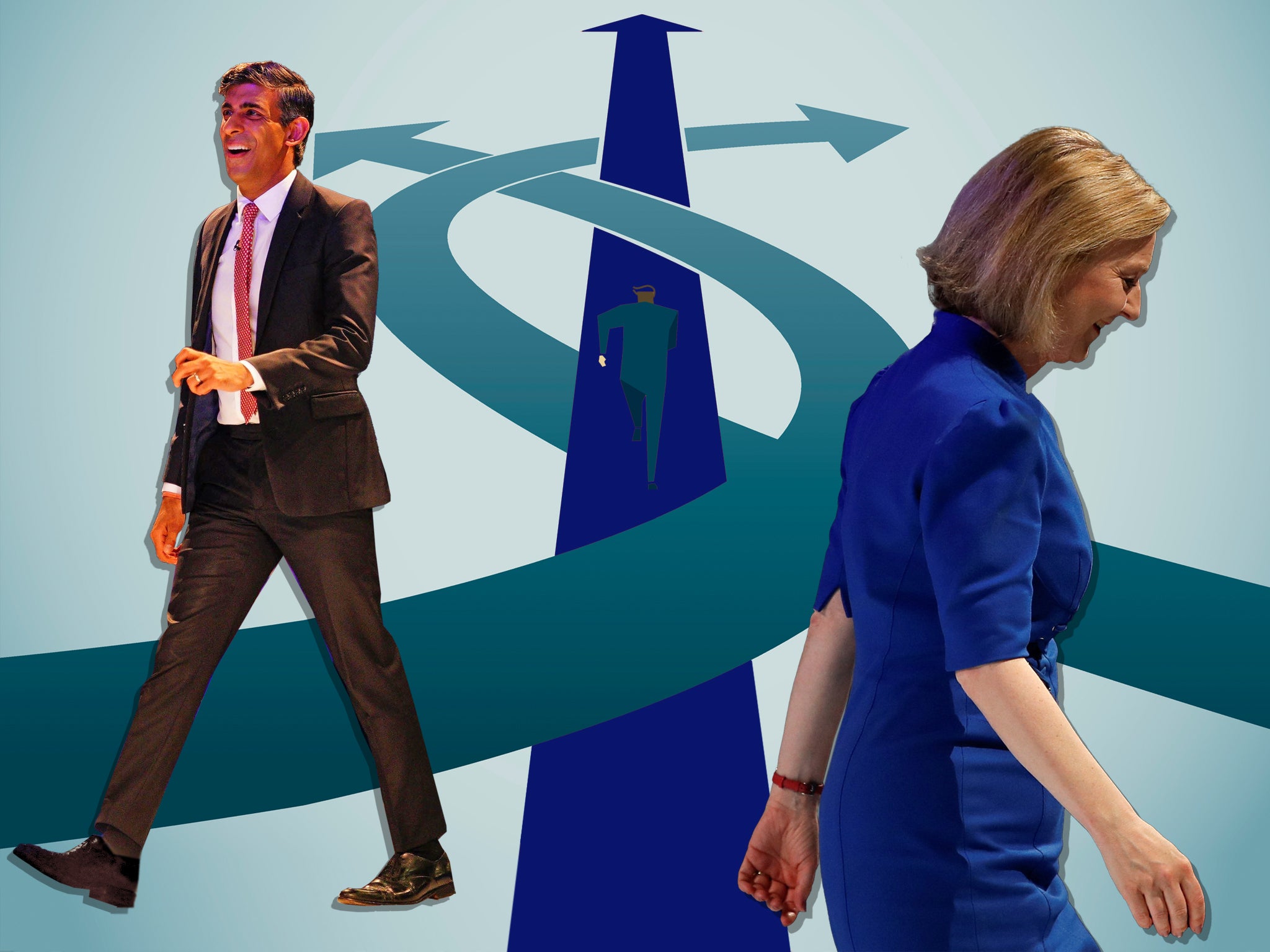Like it or not, Trussonomics is what we look likely to get – so how do we make the most of it?
There are some glints of light ahead. Inflation will ease next year and maybe fall quite sharply, writes Hamish McRae


Trussonomics – it has a strange ring about it, doesn’t it? Ever since Steven Levitt and Stephen J Dubner published Freakonomics back in 2005, the idea of adding “onomics” to a person’s name or an idea has become a useful shorthand for signalling some new way of looking at an economics issue. In this instance it is the probable next prime minister, Liz Truss, and her big idea that tax cuts are what are needed to boost the economy.
In a way it is very simple. The UK still has a huge fiscal deficit. But thanks to strong revenues and, with the exception of higher debt service charges, plus lower-than-expected spending, that deficit seems to be coming down faster than forecast. So you use that leeway to cut taxes by £30bn. That energises the economy and the faster growth that results brings in more tax and that helps in part at least to pay for the cuts.
In practice, this means cancelling the increases in National Insurance and the rise in corporation tax – both supported by Liz Truss’s rival Rishi Sunak. His response, oversimplified a bit, is there will be big cuts in income tax, but not until the deficit is down.
Her pitch is jam today, his is jam tomorrow – and while he appears to have narrowed the odds slightly, the Trussonomics version seems to be what we shall get.
What should the rest of us make of this?
One, there is a general case for tax cuts. The Sunak plan will increase the tax burden to the highest level of GDP since the late 1940s and we are already at the highest since the 1980s. There is a good House of Commons research paper here.
So unless you think people will pay more tax than at any time over the past 70 years, the Sunak plan won’t fly. This is relevant to the opposition. Every time a government has tried to raise significantly more tax they have failed, either because of an economic slowdown or because they have been voted out. That is the harsh reality that every government has to face.
Two, there is one big immediate problem and one longer-term one. The immediate problem is inflation, so any tax plan has to be seen in the context of that. Would tax cuts lead to higher inflation and hence higher interest rates? The charge that they might is one of the lines of attack.
My own feeling is that the impact would be marginal. In the last financial year the government raised £915bn in tax and other receipts. In that context tax cuts of £30bn might add a bit to inflation, but they are not so big as to add massively. A fall in the global price of gas is much more important.
The longer-term problem is productivity. We have not been doing well for some time and there is a genuine puzzle as to why. The best analysis I have seen is the work of Andy Haldane when he was chief economist of the Bank of England. His thesis, summarised in a speech here, is that the UK is uneven. The best companies are wonderful, but there is a long tail of under-performers.
The challenge is to lift those under-performers. Would tax cuts help that? Liz Truss holds that they would on the grounds that tax cuts boost sentiment, and she is supported now by former rival Penny Mourdaunt.
My own feeling is that this is a much more complex issue and not one that easily responds to fiscal changes. The “blame the Treasury” mood running across politics may play well with voters but insofar as there is a problem with government I feel it is much more in the complexity of tax and regulatory policies than in the big macro-economic decisions all chancellors have to make.
To keep up to speed with all the latest opinions and comment sign up to our free weekly Voices Dispatches newsletter by clicking here
All this sounds rather negative: a not-very-experienced politician claiming that tax cuts are the magic sauce that will revitalise the economy even though what she proposes is not huge in the totality of the country’s finances. But that is what we are going to get. Actually, there are some glints of light ahead. Inflation will ease next year and maybe fall quite sharply.
A lot of the current problems are associated with the disruption of trying to crank up service industries that were largely shut down by the pandemic, and that disruption will gradually ease. The job market remains very strong. In aggregate the country has the pile of savings accumulated during the lockdowns that will help people meet higher living costs – though that is in total and many families are not in that comfortable position at all.
But if we do scramble through this winter in OK shape it will be due to improvements in the world economy as a whole, not to the economic policies of the new prime minister.
Hamish McRae’s new book, ‘The World in 2050,’ is published by Bloomsbury






Join our commenting forum
Join thought-provoking conversations, follow other Independent readers and see their replies
Comments